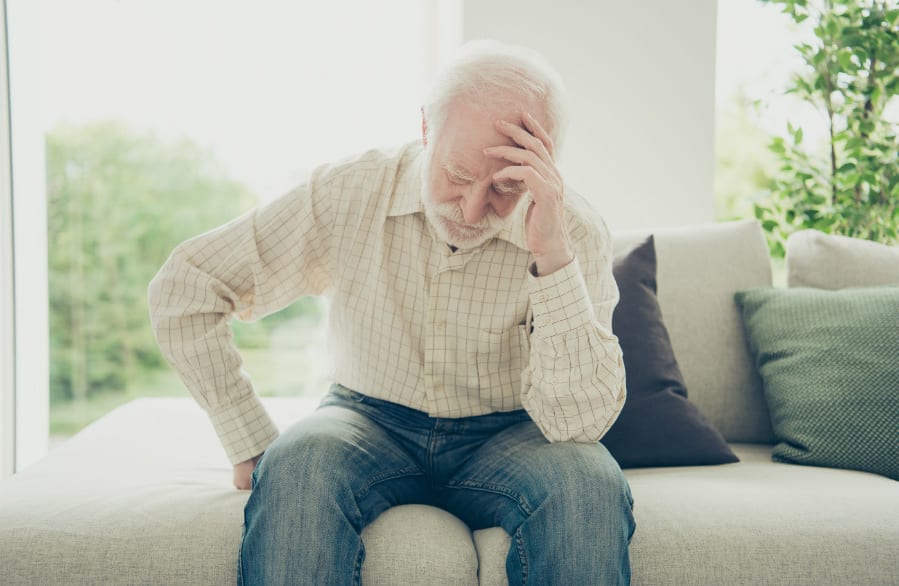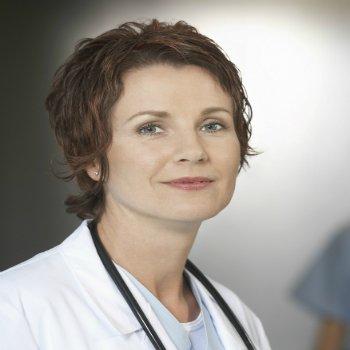When a headache is accompanied by dizziness, it may be a migraine. However, such signs could be related to many other factors. So, what causes headaches and dizziness every day? To establish this, you will have to go to a doctor who can make the determination, and then offer you the proper diagnosis and outline all the options that you could consider.
When you are feeling dizzy and at the same time you also have a headache, it may be the most unsettling thing you could ever feel. The feeling can be very perplexing and therefore you need to get help as soon as possible to get relief.
One of the challenges that a patient may face is making an accurate description of the dizziness that they are experiencing. Sometimes you feel as if you are about to pass out or you may feel like you are spinning around. Spinning is usually referred to as vertigo.
So as to assist the doctor make a proper diagnosis, you will need to tell them exactly what you experience. It is good to point out when the dizziness is at its worst like when you get up from a lying or a sitting position and the things that tend to make it go away, you will also have to disclose any other conditions that you may be dealing with such as pregnancy and diabetes since they could be the trigger.
Headache and Dizziness
When you have dizziness and a headache at once, then it can be a very unpleasant experience. There are many factors that could possibly lead to the development of the symptoms including anxiety and dehydration.
There are times when the symptoms can be an indication of a more serious issue and you should talk to a doctor to eliminate all the possibilities one at a time.
It is not very common, but sometimes the two symptoms can be an indication of an emergency that needs you to be treated immediately. One such thing is a brain aneurysm, which happens when a bulb forms within a brain blood vessel.
In most cases, you may not get any kind of symptoms unless they rupture. You may experience a very severe headache and it is possible that you could get easy at the same time.
There are other symptoms associated with such a condition and so they should all be disclosed to the doctor for a proper diagnosis.
Causes of a headache and dizziness

- Migraines: this is one of the main causes of disability and pain, and can be associated with some form of dizziness. When you are having a migraine, you may get a sense of instability probably because of dysfunction when it comes to the organs found within the ear that are responsible for the balance.
- Brain injury: you may have had a blow to the head area which may cause you to experience pain and dizziness. During such a moment, you may get a tension headache or even a migraine, or both.
- Blood sugar: low blood sugar may be responsible for that excruciating headache and dizziness. You may experience such just some hours after you have eaten. The best way to handle this is to have a snack and frequent meals to keep the symptoms away. For diabetics, blood sugar monitoring is necessary. If you have low blood sugar, then you will probably experience trembling, sweating, and hunger pangs too.
- Medications: dizziness and headaches can be associated with medications you are taking, especially when you begin a dose. The meds include pain medications, birth control, Antibiotics, Erectile dysfunction meds, medications for blood pressure, tranquilizers, Sedatives, and anti-depressants.
- Autoimmune conditions: this is when the body starts attaching your healthy tissue mistakenly like it world infectious invaders.
- Poor vision: when you suffer from headaches and dizziness, it may mean you need glasses. A headache could indicate that the eyes are being strained, while the dizziness may show that you have issues as you adjust to seeing far away things to the ones that are much closer.
The Medical term for a headache
A headache can be described as pain in the head. It is possible to interpret pain in the upper back or neck as a headache. Headaches are the most common complaints that you will hear people talk about.
Most of them are usually self-limiting and benign and they do not always last long. They can be treated with water or over the counter painkillers. Causes of headaches include sinusitis, low blood sugar, dehydration, eye strain, and tension.
More serious causes include brain tumors, high blood pressure, cerebral aneurysms, encephalitis, and meningitis. The medical term for headaches is cephalgia.
The Medical term for dizziness
Dizziness can be described as an impairment of stability and spatial perception. However, the term itself is quite imprecise and it may be in reference to disequilibrium, presyncope, vertigo, or other feelings that are not specific. Dizziness can be induced when one engages in some disorienting activities like spinning.
⇒ Vertigo: spinning sensation when you feel like the surrounds are spinning around you. It can be disturbing and can be associated with vomiting and nausea.
⇒ Disequilibrium: an off-balance sensation characterized by recurrent falls towards a given direction.
⇒ Presyncope: this is muscular weakness, lightheadedness, and even feeling faint; it differs from syncope (fainting).
Causes of a headache in the elderly

However, they may be an indication of more serious underlying conditions that are age-associated. Chronic medications can cause pharmacy induced kinds of headaches.
Clinicians are supposed to determine the possible causes and accurate way to offer medications that can help.
The elderly are more prone to the primary kind of headaches such as tension headaches or migraines. A hypnic headache is also rare but can be seen in older adults; secondary headaches are also quite common and can be closely related to polypharmacy or comorbid conditions.
Such issues can be life-threatening. When the elderly are concerned, the doctor has to rule out the secondary issues that could be a representation of more urgent condition before they settle for the primary syndromes.
Tension headaches are common in the elderly, but the severity and in frequency usually reduce as we age.
Migraines are also common in older adults. This could be caused by intracranial hemorrhage, seizure disorder, and transient ischemic attack.
A hypnic headache is also common in older adults and can be moderate to mild; it could be caused by sleep apnea, using angiotensin, pituitary tumors, posterior fossa, and nocturnal hypertension.
Can neck pain cause headaches?
Headaches can be caused by many things, but there is no mechanism that can be pointed out as the single cause. When it comes to tension headaches, the cause is usually within the neck area, causing muscle tension as well as some trigger points.
There are some muscles located at the skull base, these are called suboccipital muscles, and they may cause headaches. The muscles aid movement of your skill and the 1st and 2nd neck vertebra.
Trauma, slouching posture, teeth grinding, bad ergonomics at your workstation, new glasses, as well as eye strain can lead to the tension.
Can lack of sleep cause headaches?
You can suffer from a lack of a sleep headache. When you do not get adequate help and you have poor sleeping habits, you may suffer migraines or you may get migraines more frequently than normal. New research can explain the different biological links that exist between headaches and sleep deprivation.
When you are deprived of sleep, then p38 and PKA proteins are increased within the system and they help in the regulation of sensory response within facial nerves and this leads to migraines.
When you have a headache, you may not be able to sleep well. When you do not sleep well for a couple of days, you may end up developing a headache in the morning.
Can constipation cause headaches?
When you have a headache, you may try hard to find what is causing it and you may start wondering if it is related to constipation. It is not very clear where headaches and constipation are related.
However, you should note that both the symptoms could be an indication that there is another condition. When you do not have around three bowel movements in a span of one week, you may be a victim of constipation and the stools could be rather hard to pass.
When constipation and headaches occur, you may not have to worry since we all experience them once in a while. Water and fiber could be enough to deal with them. Coping with stress can also be helpful. If they become regular, then you could have other conditions.
How to get rid of cluster headaches?
Cluster headaches come with a characteristic pain as well as pattern attacks. Diagnosis usually depends on the kind of attacks you describe and this includes the severity, the location, and the pain.
Any other symptoms associated with headaches are also considered. This helps the doctor to know the kind of a headache as well as its origin.
The doctor uses different approaches to make the determination. He can carry out neurological examinations, imaging tests and so on. Cluster headaches occur quickly and should then be handled the same way.
You can make use of acute and preventive kind of treatments. They include:
- Oxygen
- Triptans
- Octreotide
- Dihydroergotamine
- Calcium channel blockers
- Corticosteroids
- Lithium carbonate
- Nerve block
- Melatonin
- Surgery
Tips to get rid of a headache
When you experience a headache, you want it to go away as fast as possible. It is important to know of the best ways in which you can treat a headache and this should include medications and some coping tips.
Headaches are chronic pain and are very common. When you have a headache, you may have difficulty doing normal activities such as working, talking and driving.
You can consider using medications to treat headaches. Over the counter medications work just fine. Such medications include aspirin, naproxen, ibuprofen, and acetaminophen.
If you suffer from recurring headaches, you may need a doctor’s prescription for prescription-strength doses of NSAIDs. It is important to think carefully about medication used since there are some that can lead to gastric irritation.
When you use pain relievers frequently, you may get rebound headaches. Even without medication, one can cope with some type of headaches. You should try to:
⇒ Rest by taking a breaking and closing your eyes
⇒ Massage the temples and the neck
⇒ Warm up the neck area
⇒ Relax through meditation, deep breathes, and peaceful thoughts
⇒ Try to keep stress at a minimum
⇒ Be conscious of what you drink and eat
Causes of dizziness in elderly

The causes of these symptoms may be greatly varied because of things like sickness. Sinus issues like stroke and diseases of the blood vessels and the heart can also give such symptoms. It is important to point out the real cause so that it can be addressed as soon as possible.
Causes of dizziness include:
- Problems in the inner ear affecting the mechanism of the body balance
- Reduce the flow of blood to your brain because of dehydration, transient ischemic attack, heart arrhythmias, and orthostatic hypotension and so on.
- Some medications and drugs can also cause dizziness. They include tranquilizers, anti-seizure drugs, blood pressure drugs sedatives, and anti-depressants.
- Anemia
- Anxiety disorders such as panic attacks, concussions, and migraines
- Hypoglycemia
- Glaucoma, diabetic retinopathy, macular degeneration, and cataracts are a common cause of dizziness in elderly persons.
Can anxiety cause dizziness?
Yes, anxiety can cause dizziness and it is one of the most common symptoms associated with the same. On the other hand, you may also get anxious when you feel dizzy.
In our bodies, there is a system called vestibular which is responsible for sensing the position we are in as well as movement within the surroundings, the system is located within the inner ear and is connected to the brain and the nerves.
It is here that dizziness originates when things are not right. It is believed that the areas that bring about dizziness and the balance areas can interact and that is why it is possible to have both symptoms at the same time.
You may feel as if you are swaying even when you are standing. Crowded areas can also cause such a sense of disequilibrium and imbalance.
Can constipation cause dizziness?
When you do not take enough fluids as well as nutrients, it may lead to constipation and electrolyte issues. If this happens, the heart fails to work as it should and you end up feeling dizzy.
When blood flow to the gut area is not adequate or if you have some inflammatory issues within that area causing you to lose blood, then it is possible that you could feel dizzy.
Not moving about can lead to constipation and when you stand up suddenly, it is possible for you to feel dizzy because of postural hypotension but not due to constipation.
Diabetes and dizziness
Diabetes is a very diverse disease and it comes with lots of complications. This means that diabetes can actually cause dizziness in so many ways and can affect various parts of your body.
Dizziness can be described as an unbalance and unsteadiness episode. This can be because of an effect on the ears or brain. It is important to note that there are many other things that can lead to dizzy spells.
If you suffer from recurrent dizzy spells, it may be necessary to be in touch with a doctor who can diagnose the root issue. High sugar levels and low sugar levels within the blood are associated with dizziness.
How to get rid of the dizziness?
Dizziness affects different people differently and there are many things that can cause it. It is something that is very hard to describe and a number of people have a hard time expressing what it is that they feel.
Dizziness cannot be described as a condition or a disease on its own. It is more of a symptom and may indicate that there is another underlying issue. Dizziness may go away after a while and in some cases, but sometimes, it lingers. However, there are many ways in which it can be treated.
If you experience dizziness, especially regularly, you should consider talking to a doctor who can give a clear evaluation. You may be given medications, lifestyle changes, therapies, and sometimes surgery.
Medications can treat the causes of dizziness such as the buildup of fluid within the ear or drug side effects.
Acupuncture can also be used to deal with dizziness. This is especially when you use medications, but the dizziness remains persistent. Dizziness could be an indication of dehydration and so it is wise to drink more water or other liquids that are not alcoholic to hydrate. Consider lying down if you feel dizzy. It is also wise to avoid tobacco use.
Conclusion:
In most cases, headache treatments that take care of headaches are also enough to handle dizziness. You can use over the counter medications, maintaining a regular and healthy diet, biofeedback, relaxation techniques, antidepressants, medication for a headache and migraine prevention, and prescription drugs for the treatment of migraines.
It is important to deal with all the underlying conditions that may be causing your dizziness. It is important to get a doctor’s opinion when the symptoms persist. Extra caution should be taken especially when the elderly are concerned. The symptoms can be very uncomfortable and puzzling, and dealing with them once and for all is the only way you can get permanent help.

